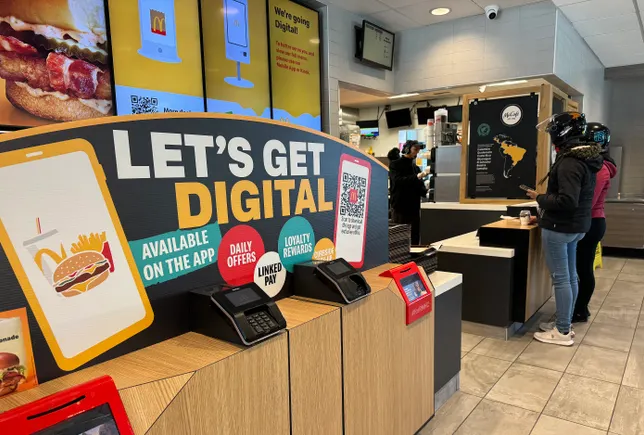Introduction:
With consumers receiving tons of information and choices, being creative and innovative is key to capturing and keeping their attention. In today’s world where we are always connected and expect things instantly, people want experiences that are not only informative but also fun and engaging. Interactive quizzes provide a special way for users to join in and learn about themselves and their interests while consuming content. This article will discuss interactive content quizzes, their effectiveness as a marketing tool, the psychology of why they engage people, and tips for making and sharing quizzes that connect with your audience. Discover how interactive quizzes can captivate your audience in unique ways in 2024 and beyond.
- A whopping 81% of marketers state that interactive content and interactive quizzes are much more effective at grabbing a customer’s attention than static content.
- Interactive content is also 88% more efficient in distinguishing a brand from others.
- Furthermore, 77% of marketers state that interactive content leads to repeat visitors thus increasing traffic through customer engagement and brand awareness.
- Interactive content is also versatile enough to be combined with other forms of content marketing. 79% of marketers agree that this combination is beneficial in ensuring message retention.
- Interactive content is also 93% more effective in educating buyers about their concerns.
Statistics cited from- https://outgrow.co/blog/interactive-quizzes
Discovering the Mental Mechanics of Engaging Quizzes
The key to creating compelling content that resonates with your audience lies in understanding the psychology behind engaging quizzes. Human psychology is fundamentally important in explaining why quizzes are attractive and impactful as a marketing strategy.
· Quizzes leverage human curiosity and the need for self-exploration.
· Participants are encouraged to join in to discover something new about themselves or measure their knowledge against others.
· Quizzes offer a diversion from passively consuming content, involving users in a dynamic and hands-on experience.
· Quizzes address various psychological needs like validation, self-disclosure, and social bonding, attracting a broad range of users.
· The immediate feedback from quizzes meets users’ desire for instant rewards and strengthens their interaction with the material.
Understanding the Diverse Range of Quiz Categories
There are a variety of different quizzes to choose from.
· Trivia quizzes aim to evaluate one’s understanding of specific topics through factual knowledge testing.
· Personality quizzes are designed to unveil individual personality traits or preferences.
· Knowledge quizzes serve the purpose of gauging one’s comprehension on a particular subject matter.
· Assessment quizzes are utilized to assess skills or proficiency levels.
· Interactive quizzes are structured to involve participants through dynamic elements.
· Survey quizzes are used to gather feedback or opinions from participants.
· Diagnostic quizzes are implemented to pinpoint areas of strengths and weaknesses.
· Outcome quizzes offer personalized recommendations based on the quiz taker’s responses.
· Compatibility quizzes focus on evaluating the compatibility between individuals.
· Engagement quizzes are created to entertain and captivate participants, keeping them engaged throughout the quiz.
Guide for Crafting an Interactive Quiz Using Online Forms:
Crafting an interactive online quiz is a skill that involves carefully thinking about different aspects to attract and hold the interest of your audience. Using online tools like form builders or specialized quiz creation software can make the process more efficient, helping you design visually appealing and easy-to-use quizzes effortlessly.

· Begin by selecting a suitable online form builder or quiz creation platform that meets your requirements and fits within your budget. Some popular choices include Type form, Google Forms, SurveyMonkey, Outgrow, and Riddle.
· Clearly establish the goals of your quiz: Are you trying to educate, entertain, acquire leads, or gain insights from your audience? Knowing your objectives will assist in creating engaging content that appeals to your desired audience.
· Arrange Your Quiz: Plan out your quiz in a coherent manner, beginning with an engaging title and introduction that establish the mood and anticipation. Break down your quiz into segments or groups if needed and think about adding progress markers to hold participants’ interest throughout the activity.
· Create Thought-Provoking Questions: Try out various question styles like multiple-choice, true/false, open-ended, or scenario-based to keep participants engaged and appeal to different tastes. Generate questions that stimulate thinking, are pertinent, and tie in with the goals of your quiz.
· Leverage Visuals and Multimedia: Using visuals, such as pictures, drawings, or brief videos, can greatly improve the overall quality and attractiveness of your quiz. Visuals do not just make the quiz visually appealing but also help to explain or give context to questions, which makes them more interesting and easier to remember.
· Optimize for Mobile: Ensure your quiz is optimized for mobile as most of the online traffic comes from mobile devices. Test your quiz on different devices and screen sizes to guarantee a smooth and user-friendly experience across platforms.
· Include a Call-to-Action: Conclude your quiz with a clear call-to-action (CTA) that prompts users to take the next step. Whether it’s directing them to visit your website, subscribe to your newsletter, or share the quiz with their friends, a compelling CTA encourages further engagement with your brand.
· Evaluate and Enhance: Utilize the analysis and optimization features of the platform you have selected to monitor the performance of quizzes, engagement of the audience, and completion rates. Utilize this information to pinpoint areas that can be improved and consistently enhance your quiz content and format for optimal results.
By sticking to these guidelines and utilizing the features of online tools for creating forms or quizzes, you can design quizzes that are interesting, visually attractive, and extremely interactive, capturing the attention of your audience and encouraging valuable engagement with your brand.
Successful Examples of Engaging Target Audiences with Interactive Quizzes
The New York Times used interactive quizzes to increase reader engagement and offer informative experiences. An example is their “What is your Love style?” quiz, which helped readers find their linguistic alter ego and learn about vocabulary usage. hrough the combination of education and entertainment, The New York Times effectively engaged their audience and motivated participation.

Spotify uses interactive quizzes to improve user experience and tailor content recommendations. By engaging users in quizzes like the “Discover Weekly” playlist quiz, where they choose their favourite genres and artists, Spotify can create customized playlists according to their music tastes. This interactive strategy not only boosts user involvement but also reinforces brand loyalty and customer retention.

National Geographic uses interactive quizzes to both educate and entertain their audience on a range of subjects including science, nature, and exploration. These quizzes are typically paired with articles and documentaries, offering an interactive educational experience that complements their content. By integrating quizzes into their storytelling, National Geographic successfully captures the interest of their audience and strengthens their brand loyalty.
HubSpot, a top marketing software company, incorporates interactive quizzes into its lead generation strategy. One of their quizzes, “Marketing Grader,” enables users to evaluate their marketing performance and obtain personalized suggestions for enhancement.

Through providing valuable insights and practical guidance, HubSpot can attract qualified leads and guide them through the sales process, showcasing the efficacy of interactive quizzes in boosting conversions and fostering customer engagement.
The Last Thought:
In 2024, brands are increasingly using interactive content quizzes as a captivating method to engage with their audiences. These quizzes tap into people’s desire for fun and self-exploration, offering a new marketing approach that encourages active participation and collects important information. Various types of quizzes, such as personality tests and product finders, can be used to achieve different objectives, including education, lead generation, and gaining insights into customers. Leading companies successfully use quizzes in various industries to their advantage. Designing visually attractive and easy-to-use online quizzes with form builders is crucial. To reach a wider audience, these quizzes should be marketed through various channels such as social media, influencers, email, and SEO. When strategically incorporated, interactive quizzes can enhance audience engagement, reveal valuable insights, cultivate connections with users, and set brands apart in the ever-evolving digital environment of the future.












Leave a Reply